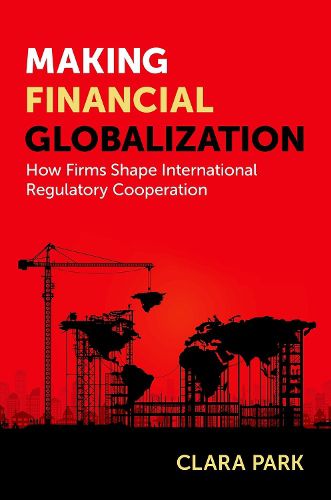Readings Newsletter
Become a Readings Member to make your shopping experience even easier.
Sign in or sign up for free!
You’re not far away from qualifying for FREE standard shipping within Australia
You’ve qualified for FREE standard shipping within Australia
The cart is loading…






In Making Financial Globalization, Clara Park challenges the conventional wisdom that finance has always been global. Drawing on original datasets of financial trade restrictions and domestic financial regulations in over 100 countries, archival research of international negotiations, and case studies of the US and China, Park details how financial firms used multilateral lobbying strategies to create an international framework for financial service liberalization. As she shows, the powerful coalition across industries and countries exerted considerable pressure on national governments, who had to weigh the costs and benefits of liberalization, and facilitated international negotiations. A novel political-economic explanation for financial globalization, this timely book challenges state-centric views in international relations and emphasizes the interplay of firms and politics as a central factor shaping financial globalization.
$9.00 standard shipping within Australia
FREE standard shipping within Australia for orders over $100.00
Express & International shipping calculated at checkout
In Making Financial Globalization, Clara Park challenges the conventional wisdom that finance has always been global. Drawing on original datasets of financial trade restrictions and domestic financial regulations in over 100 countries, archival research of international negotiations, and case studies of the US and China, Park details how financial firms used multilateral lobbying strategies to create an international framework for financial service liberalization. As she shows, the powerful coalition across industries and countries exerted considerable pressure on national governments, who had to weigh the costs and benefits of liberalization, and facilitated international negotiations. A novel political-economic explanation for financial globalization, this timely book challenges state-centric views in international relations and emphasizes the interplay of firms and politics as a central factor shaping financial globalization.